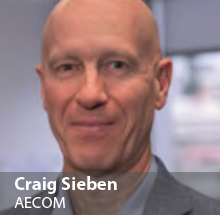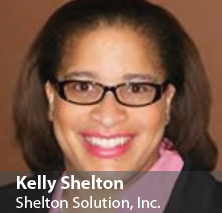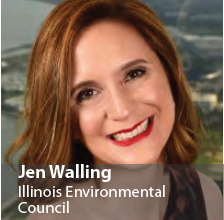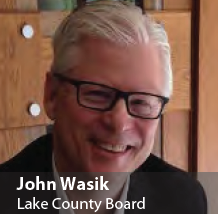|
Brushwood Center at Ryerson Woods welcomed speakers Craig Sieben, Kelly Shelton, Jen Walling, and moderator John Wasik to Renewable Energy Surges, the fourth panel in this year’s Smith Nature Symposium. This roundtable, part of a seven-part live-streamed series on critical environmental issues, explored the future of renewable energy in Illinois and the positive impact a clean energy transition would have on climate change and existing environmental inequities linked to fossil fuel pollution. These top energy consultants, policy leaders, and government officials shared their perspectives on the state of the private and public energy sector, current incentives to transition to renewables, and policy needs as we aim to build a cleaner future for our communities and the planet. “We are excited about the current enthusiasm and political will behind a renewable energy transition in Illinois. It’s crucial to improve the health of our environment, maintain a robust economy, and ensure all people’s well-being,” expressed Catherine Game, Executive Director of Brushwood Center. Over his 35-year career in energy efficiency, Craig Sieben has witnessed a significant transformation of the industry to one that increasingly values clean power. Since founding Sieben Energy Associates in 1990, Sieben has guided individuals and organizations in energy resource optimization and now uses his expertise to direct energy strategies at AECOM during this continued period of rapid industry change. Kelly Shelton, President of Shelton Solutions, Inc., also witnessed this important shift in the sector over her more than 25-year-long career providing energy consulting services to Chicagoland. Shelton Solutions currently provides energy audits and energy modeling on behalf of the State of Illinois, and Shelton’s previous clients include the City of Chicago, Chicago Transit Authority, Chicago Public Schools, and Cook Country. In guiding one of the largest cities, public school networks, and counties in the United States to greater energy efficiency, Shelton demonstrated that simple restructuring of energy portfolios provides a significant return on investment in energy and cost savings for even the most complex of organizations. Consultants’ work is key to restructuring the energy portfolios of organizations, governments, and businesses from within, but applying external pressure to government is also necessary to push society towards a future powered by renewables. This is precisely what Jen Walling, Executive Director for The Illinois Environmental Council, does as she lobbies government decision makers on environmental issues. Jen has directed The Illinois Environmental Council since 2011 and drafted, negotiated, lobbied, and passed hundreds of bills in Springfield while working to build the power, expertise and relationships of the region’s entire environmental community. Recently, as a steering committee member of the Illinois Clean Jobs Coalition, Walling pushed hard for Illinois to ratify the Clean Energy Jobs Act, which aims to put Illinois on a path to 100% renewable energy by 2050, lower energy costs for consumers, and create new job opportunities. This would improve people’s livelihoods across the state and would be particularly positive for communities of color that are often more closely located to coal-fired electricity plants than other portions of the population. Moderator John Wasik, Commissioner of the Lake County Board, also has a direct role in local government and uses his position as a public servant to advocate for a smaller county carbon footprint and the careful stewardship of community resources. Wasik pushes for greater energy efficiency as Chair of the Forest Preserve’s Planning Committee and Vice Chair of the Lake County Energy and Environment Committee. For Wasik, greening Lake County means preserving it for future generations by protecting the environment, creating good-paying jobs, and lowering government operating expenses. He has authored 18 books, spoken all across North America and contributed to The New York Times, Forbes, The Wall Street Journal, and other national publications. This year’s Smith Nature Symposium is virtual for the first time, which presents an exciting opportunity for Brushwood Center to reach as many people as possible with these timely discussions. Ticket prices are “give what you can” with a free option available for students and those who are unable to donate. The series began on August 13th and culminates in the Smith Nature Symposium Awards Ceremony on Friday, October 9th, with honorees Bill McKibben and Sue Halpern and Masters of Ceremonies Bill Kurtis and Donna La Pietra. All funds raised from the Symposium directly supported Thrive Together, Brushwood Center’s COVID-19 crisis response for a more just and sustainable future. All presentations were available in English and Spanish. To learn more about the series visit www.smithnaturesymposium.org.
3 Comments
Hey, just checked out the blog post about the Smith Nature Symposium discussing the promise of renewable energy in Illinois. It's fantastic to see leaders coming together to explore and promote sustainable solutions for our energy needs. Renewable energy is a key driver in combating climate change and reducing our carbon footprint. Kudos to Brushwood Center for organizing such an insightful event and providing a platform to discuss the importance of clean energy. Let's keep working towards a greener future for Illinois and beyond!
Reply
1/11/2024 02:24:31 pm
It's so inspiring to see energy leaders coming together to discuss the promise of renewable energy in Illinois at the Brushwood Center's Smith Nature Symposium. Renewable energy is not only beneficial for the environment but also for our economy and communities.
Reply
1/30/2024 08:04:00 am
It's truly inspiring to see leaders in the energy sector come together to discuss the promise of renewable energy in Illinois. The Smith Nature Symposium's panel on Renewable Energy Surges, hosted by Brushwood Center at Ryerson Woods, brought together experts like Craig Sieben, Kelly Shelton, Jen Walling, and moderator John Wasik to delve into this critical issue.
Reply
Leave a Reply. |
AuthorThis blog is written by the staff and partners of Brushwood Center at Ryerson Woods Archives
February 2022
Categories |
|
21850 N. Riverwoods Rd.
Riverwoods, IL 60015 224.633.2424 [email protected] ABOUT BRUSHWOOD BECOME A PARTNER VOLUNTEER AND JOB OPPORTUNITIES |
Brushwood Center at Ryerson Woods is committed to enabling the participation and enjoyment of our programming and events for all visitors. At Brushwood Center, you will have open access to accessible parking and entrance to the house, a gender neutral bathroom, and changing tables.
If you require certain accommodations in order to observe or attend our events, or have questions regarding accessibility of our facilities, please contact our Director of Public Programs and Music, Parker Nelson, at [email protected] or at (224) 633-2424 ext. 1. Programming and events at Brushwood Center are available to everyone, including but not limited to age, disability, gender, marital status, national origin, race, religion, and sexual orientation. Site Photography by: In Life Photography, Michael Kardas Photography, Ewa Pasek Photography, Brushwood Staff, and Josiah Shaw Productions |
OPEN TO THE PUBLIC Monday - Thursday & Saturday: 10am - 3pm Sunday: 1pm - 3pm and by appointment |





 RSS Feed
RSS Feed
